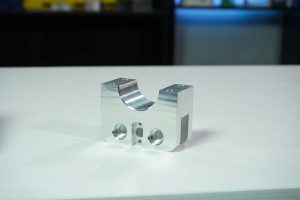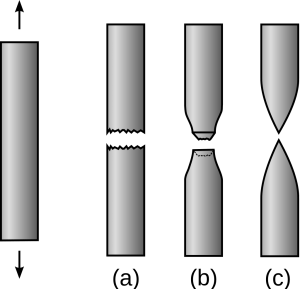Custom machined parts manufacturing is an integral part of many industries. From automotive to aerospace, custom machined parts are essential components that require strict quality control measures to ensure they function as intended. In this article, we’ll discuss the importance of quality control in custom machined parts manufacturing and why it should be a top priority for manufacturers.
The Need for Quality Control in Custom Machined Parts Manufacturing
Imagine a scenario where a car manufacturer orders custom machined parts for their vehicles. If these parts are not manufactured to the right specifications, the car’s performance and safety could be compromised. This scenario highlights the need for quality control in custom machined parts manufacturing.
Quality control is the process of ensuring that products meet the required specifications and standards. In custom machined parts manufacturing, quality control is essential to ensure that the parts meet the precise specifications of the customer. Failure to do so could result in product defects, delays in production, and potential safety hazards.
The Benefits of Quality Control in Custom Machined Parts Manufacturing
- Reduced Costs
Implementing quality control measures in custom machined parts manufacturing can help reduce costs in the long run. By catching defects early on, manufacturers can avoid costly reworks, scrap, and waste. Quality control can also help identify areas where process improvements can be made to reduce costs and improve efficiency.
- Improved Customer Satisfaction
Custom machined parts are often made to order, meaning that the customer has specific requirements that need to be met. By implementing quality control measures, manufacturers can ensure that the parts meet the customer’s requirements, resulting in improved customer satisfaction. Satisfied customers are more likely to return for repeat business, which can help drive revenue and growth.
- Increased Safety and Reliability
Custom machined parts are often used in critical applications, such as aerospace and medical devices. These applications require high levels of safety and reliability. Implementing quality control measures can help ensure that the parts meet the required safety and reliability standards. Failure to do so could result in serious safety hazards, product recalls, and damage to the manufacturer’s reputation.
Quality Control Processes in Custom Machined Parts Manufacturing
Quality control processes in custom machined parts manufacturing involve several stages, including:
- Design Review
The design review stage involves reviewing the customer’s specifications and ensuring that the design can be manufactured to the required standards. This stage may involve consulting with the customer to clarify their requirements and ensure that the design meets their needs.
- Material Inspection
Material inspection involves inspecting the raw materials used in the manufacturing process to ensure that they meet the required specifications. This stage may involve testing the materials for strength, durability, and other properties.
- Manufacturing Process Inspection
Manufacturing process inspection involves inspecting the parts at various stages of the manufacturing process to ensure that they meet the required specifications. This stage may involve using measurement tools, such as micrometers and calipers, to ensure that the parts are within the required tolerances.
- Final Inspection
Final inspection involves inspecting the finished parts to ensure that they meet the required specifications. This stage may involve using advanced inspection equipment, such as coordinate measuring machines (CMMs), to ensure that the parts meet the required tolerances.
Conclusion
Quality control is an essential aspect of custom machined parts manufacturing. By implementing quality control measures, manufacturers can ensure that their parts meet the required specifications, resulting in reduced costs, improved customer satisfaction, and increased safety and reliability. Quality control processes in custom machined parts manufacturing involve several stages, including design review, material inspection, manufacturing process inspection, and final inspection.
Manufacturers should prioritize quality control in their custom machined parts manufacturing processes to ensure that they deliver high-quality products that meet their customers’ needs. By doing so, they can establish a reputation for excellence, drive growth,and ensure the safety and reliability of their products.
Custom machined parts manufacturing is a highly technical and specialized field that requires a high degree of expertise and attention to detail. By implementing quality control measures, manufacturers can ensure that their products meet the required specifications and standards, resulting in high-quality products that meet their customers’ needs. As such, quality control should be a top priority for manufacturers of custom machined parts.
In conclusion, quality control is an integral aspect of custom machined parts manufacturing that should not be overlooked. Manufacturers should implement quality control measures at every stage of the manufacturing process to ensure that their products meet the required specifications and standards. By doing so, they can reduce costs, improve customer satisfaction, and increase the safety and reliability of their products. Ultimately, quality control is key to establishing a reputation for excellence and driving growth in the custom machined parts manufacturing industry.



